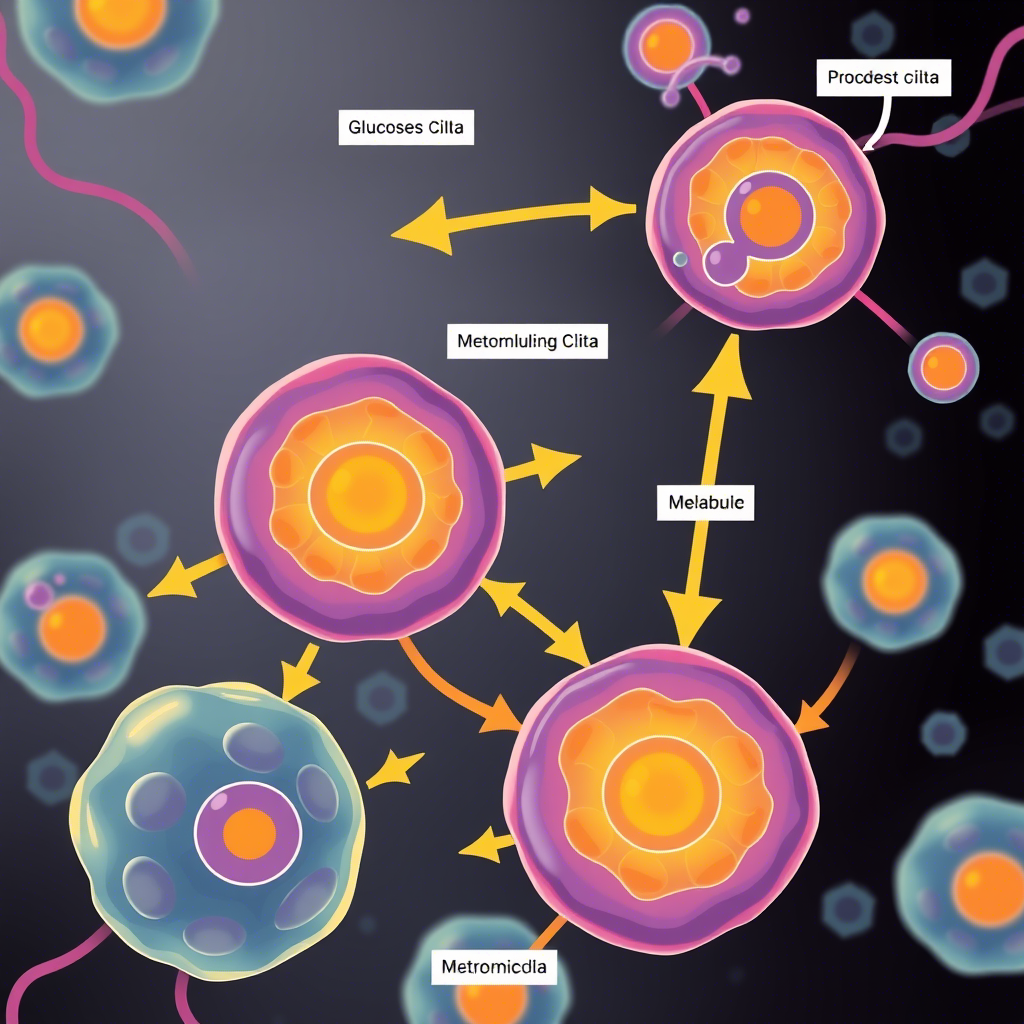Have you ever wondered why some people can eat whatever they want without gaining weight, while others seem to gain weight just by looking at food? The answer lies in metabolism, the complex biochemical process that converts what we eat and drink into the energy our bodies need to function. Let’s dive deeper into understanding this fascinating system that keeps us alive and energized.
What Is Metabolism?
Metabolism refers to all the chemical reactions that occur in your body to maintain life. These chemical reactions are necessary for basic functions such as breathing, circulating blood, digesting food, repairing cells, and growing new ones. Your metabolism is active 24/7, even while you’re sleeping.
The term “metabolism” is often used interchangeably with “metabolic rate,” which refers to the number of calories your body burns in a given period. This rate determines how quickly you process food and convert it into energy.
The Two Main Metabolic Processes
Metabolism consists of two primary processes:
- Catabolism: This process breaks down molecules into smaller units, releasing energy in the process. For example, when you digest food, your body breaks down carbohydrates into glucose, proteins into amino acids, and fats into fatty acids.
- Anabolism: This is the constructive phase where your body uses the energy released during catabolism to build complex molecules from simpler ones. This includes processes like building proteins from amino acids or creating new cells.
Factors That Affect Your Metabolic Rate
Several factors influence how fast or slow your metabolism works:
Body Size and Composition
Larger people and those with more muscle mass tend to burn more calories, even at rest. Muscle tissue requires more energy to maintain than fat tissue does, which means that individuals with higher muscle-to-fat ratios generally have higher metabolic rates.
Age
As we age, our metabolic rate naturally slows down. This decline begins around age 30 and continues throughout life. By the time you reach 70, your metabolism may be significantly slower than it was in your 20s. This partly explains why many people gain weight as they get older, even if they don’t change their eating habits.
Gender
Men typically have faster metabolisms than women because they usually have more muscle mass, less body fat, and larger bodies. However, this is a generalization, and individual variations exist.
Hormonal Factors
Hormones play a crucial role in regulating metabolism. Thyroid hormones, for instance, directly control how fast or slow cells work. If your thyroid produces too much hormone (hyperthyroidism), you may experience weight loss, rapid heartbeat, and anxiety. Conversely, if it produces too little (hypothyroidism), you might gain weight, feel tired, and become cold-sensitive.
Physical Activity
Regular exercise increases your metabolic rate not only during the activity but also afterward. High-intensity workouts can keep your metabolism elevated for several hours after exercising, a phenomenon known as excess post-exercise oxygen consumption (EPOC) or the “afterburn effect.”
Basal Metabolic Rate (BMR)
Your basal metabolic rate (BMR) represents the minimum amount of energy your body needs to perform basic functions while at rest. These functions include breathing, circulating blood, maintaining body temperature, growing and repairing cells, and managing hormone levels.
BMR accounts for approximately 60-75% of the total calories you burn each day, making it the largest component of your energy expenditure. The remaining calories are burned through physical activity and the thermic effect of food (the energy required to digest, absorb, and process nutrients).
Calculating Your BMR
Several formulas can estimate your BMR, with the Harris-Benedict equation being one of the most commonly used:
For men: BMR = 88.362 + (13.397 × weight in kg) + (4.799 × height in cm) – (5.677 × age in years)
For women: BMR = 447.593 + (9.247 × weight in kg) + (3.098 × height in cm) – (4.330 × age in years)
While these calculations provide estimates, they don’t account for individual variations in hormones, genetics, and body composition.
Myths and Facts About Metabolism
Myth: Eating Small, Frequent Meals Boosts Metabolism
Despite popular belief, eating more frequently doesn’t significantly impact your metabolic rate. What matters more is your total daily caloric intake rather than how often you eat.
Fact: Certain Foods and Drinks Can Temporarily Boost Metabolism
Some foods and beverages, such as those containing caffeine, can temporarily increase your metabolic rate. Green tea, coffee, and chili peppers containing capsaicin may provide a small metabolic boost, but the effect is modest and short-lived.
Myth: You Can’t Change Your Metabolism
While genetics play a role in determining your metabolic rate, you can influence it through lifestyle choices. Building muscle through strength training, staying active throughout the day, and consuming adequate protein can all help maintain or even increase your metabolic rate.
Metabolism and Weight Management
Understanding your metabolism is crucial for effective weight management. If you consume more calories than your body burns, you’ll gain weight. Conversely, if you consume fewer calories than your body needs, you’ll lose weight.
However, drastically reducing calorie intake can backfire. When you significantly cut calories, your body enters “starvation mode,” slowing down your metabolism to conserve energy. This adaptive response makes weight loss increasingly difficult and weight regain more likely when you resume normal eating.
Sustainable Approaches to Boosting Metabolism
Rather than focusing on quick fixes, consider these evidence-based strategies for supporting a healthy metabolism:
- Strength training: Building and maintaining muscle mass is one of the most effective ways to boost your metabolic rate.
- High-intensity interval training (HIIT): This form of exercise has been shown to increase metabolic rate for hours after the workout ends.
- Adequate protein intake: Your body burns more calories digesting protein compared to fats and carbohydrates.
- Staying hydrated: Some research suggests that drinking cold water may temporarily boost metabolism as your body uses energy to heat the water to body temperature.
- Getting enough sleep: Poor sleep can disrupt hormones that regulate metabolism and appetite, potentially leading to weight gain.
Conclusion
Metabolism is a fascinating and complex system that powers every aspect of our lives. While we can’t completely overhaul our natural metabolic tendencies, understanding the factors that influence metabolism allows us to make informed lifestyle choices that support our health and weight management goals.
Remember that sustainable habits—regular physical activity, balanced nutrition, adequate sleep, and stress management—are far more effective for long-term metabolic health than any quick fix or fad diet promising to “rev up” your metabolism overnight.
By working with your metabolism rather than against it, you can create a healthier relationship with food and your body while achieving your wellness objectives.




